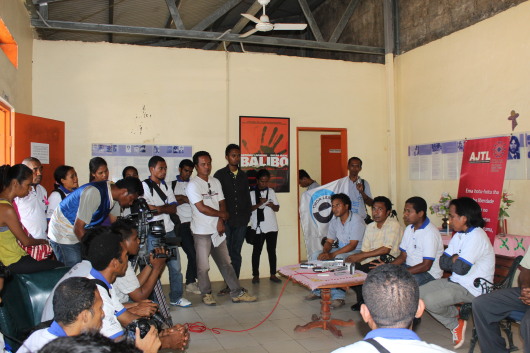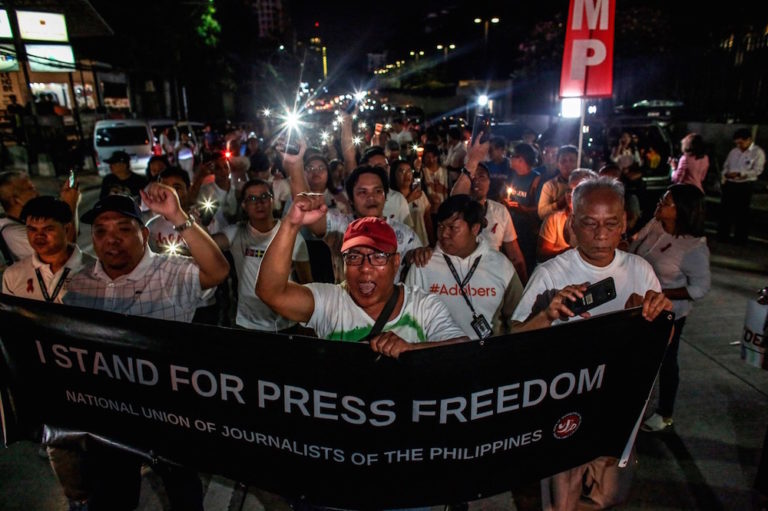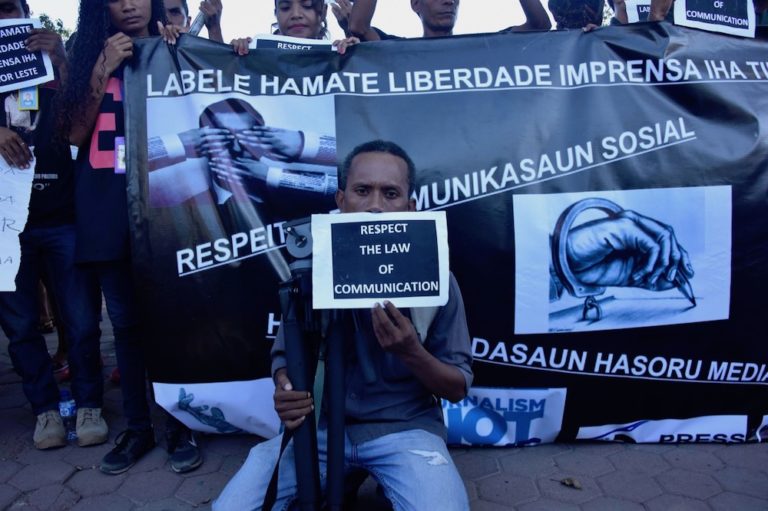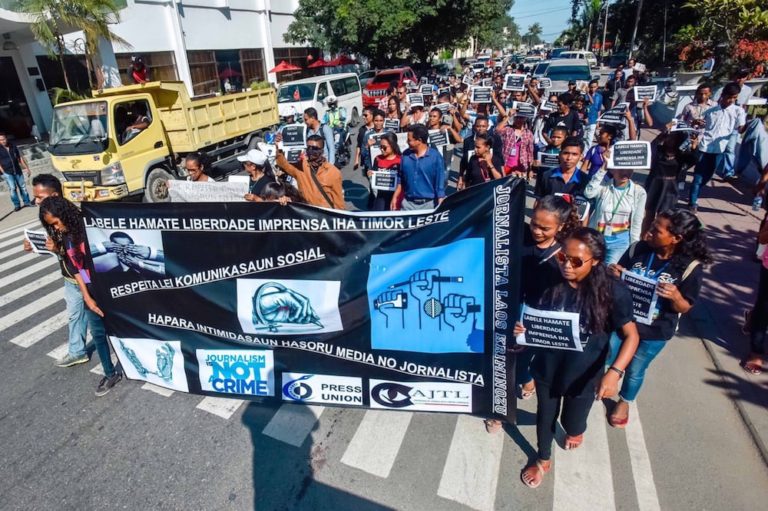The IFJ joins the Timor Lorosa'e Journalists' Association in raising concerns about East Timor's pending draft media legislation and its impact on press freedom and freedom of expression after a recent round of media consultations on the law.
The International Federation of Journalists (IFJ) joins East Timor affiliate Timor Lorosa’e Journalists’ Association (TLJA) in raising concerns about the country’s pending draft media legislation and its impact on press freedom and freedom of expression after a recent round of media consultations on the law.
A draft version of the law was approved by the Council of Ministers on August 6, 2013, and sent to the National Parliament for enactment. Parliamentary hearings with journalists’ associations, including the TLJA, were held during the week of February 3-7 2014.
“We are appreciative of all efforts from the media main players and stakeholders in preparing the media draft law but we are disagree with certain clauses,” said TLJA president, Tito Filipe.
“We want the law to reflect the realities of the modern media and to obey international standards. What we see in these laws gives an impression that they intend to regulate the press rather than protect the rights of East Timorese journalists.”
The TLJA is disturbed by provisions in the draft legislation that define journalists and media as being certified by the Press Council; and as individuals employed by a recognised media outlet and who have served at least six months as an intern in a media organisation.
“That means part-time, student and freelance journalists would be barred from their work unless they have been certified by the Press Council,” Filipe said.
The TLJA stated that under the legislation foreign journalists and correspondents would be prevented from working in the country without Government authorisation. Journalists could also be opened up to fines and potential legal action.
The East Timor Institute for Reconstruction Monitoring and Analysis, La’o Hamutuk has produced an English translation of the draft legislation.
“The TLJA calls on the national Parliament to carefully consider the impact of this law on East Timor’s democracy and society, as well as on journalists. We call on the government to ensure that major changes are made to the draft legislation before it is enacted,” Filipe said.
The IFJ strongly reiterates the TLJA’s calls for the government to reconsider the draft legislation.
“The IFJ calls on the Government of East Timor to take heed of the concerns raised by its media in developing the country’s new media laws,” said IFJ Asia-Pacific director, Jacqueline Park.
“Any legislation that would limit the capacity of local and international journalists reporting on East Timor, also limits the public’s right to know and is of great concern to the IFJ. We urge the government to ensure those reservations and perspectives are taken seriously and incorporated into the draft media law.”



